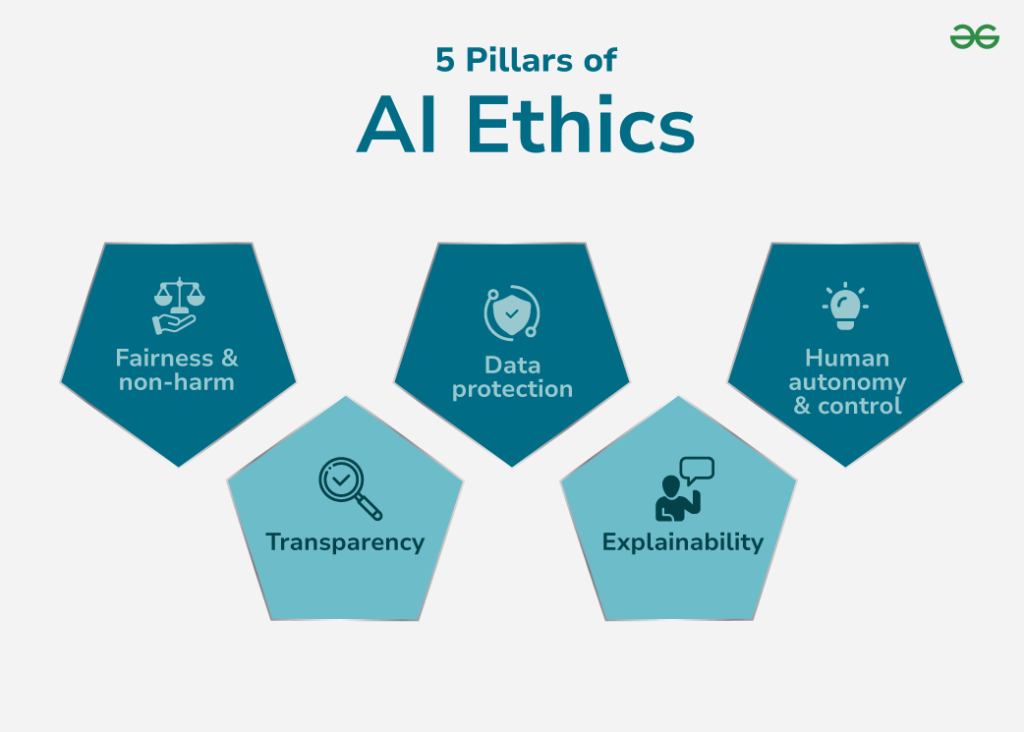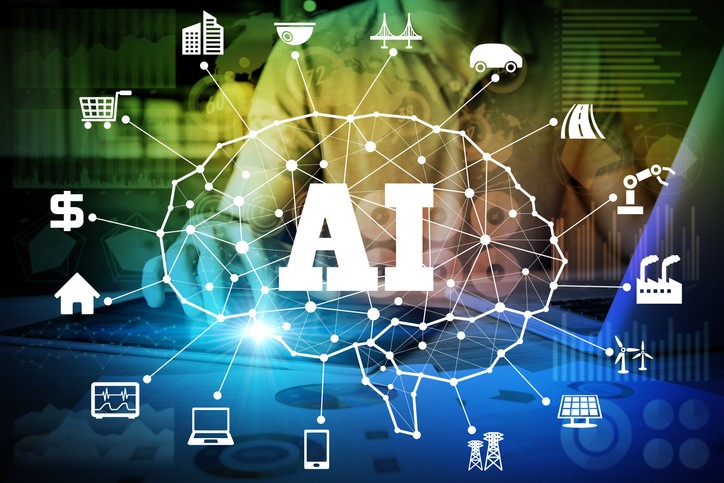In today’s rapidly advancing technological landscape, Artificial Intelligence (AI) has become an integral part of our everyday lives. From voice assistants to autonomous vehicles, AI is revolutionizing industries and shaping the future. However, as AI continues to evolve, so does the need for careful consideration of the ethical implications associated with its development and use. AI ethics is now a critical area of focus, as businesses, governments, and individuals work to ensure that AI technologies are used responsibly and for the greater good.
This article explores the importance of AI ethics, the challenges associated with AI development, and the strategies to ensure that AI is developed and implemented ethically, responsibly, and in ways that benefit society.
1. What is AI Ethics?

AI ethics refers to the field of study that deals with the moral and ethical issues surrounding the development, implementation, and usage of Artificial Intelligence technologies. It aims to address the potential risks and consequences AI may have on individuals, communities, and societies. AI ethics involves discussions on fairness, accountability, transparency, privacy, bias, and the responsible deployment of AI systems in various domains.
AI ethics seeks to ensure that AI technologies are designed and deployed in ways that align with human values, social norms, and legal frameworks, while also minimizing potential harm.
2. The Importance of AI Ethics in the Modern World
As AI systems become increasingly embedded in sectors such as healthcare, finance, law enforcement, and even entertainment, it is essential to address the ethical concerns that arise. Here’s why AI ethics is crucial:
- Ensuring Fairness and Equity: AI systems must be developed in a way that avoids perpetuating biases. AI models trained on biased data can lead to discriminatory outcomes, affecting minority groups and vulnerable populations. Ethical AI practices ensure that fairness and inclusivity are prioritized.
- Privacy Protection: AI technologies can collect vast amounts of personal data. Without proper ethical frameworks, the use of this data can infringe on privacy rights and lead to misuse. AI ethics helps in safeguarding personal information and ensuring data privacy is respected.
- Accountability and Responsibility: As AI systems make more decisions autonomously, it becomes increasingly important to define who is accountable when AI makes a mistake or causes harm. Ethical frameworks help clarify the responsibility of developers, users, and organizations.
- Transparency and Trust: Transparent AI systems are vital for building trust among users. When individuals understand how AI systems make decisions, they are more likely to trust them. Ethical AI emphasizes transparency in algorithms, decision-making processes, and data usage.
- Mitigating Risk and Harm: AI systems have the potential to cause significant harm if not properly controlled. For example, autonomous weapons, facial recognition systems, and AI in healthcare can raise safety concerns if ethical guidelines aren’t followed. AI ethics plays a role in identifying and mitigating potential risks.
3. Key Challenges in AI Ethics
While the importance of AI ethics is clear, implementing ethical guidelines in AI development and use presents several challenges. Let’s explore some of these hurdles:
- Bias in AI Algorithms: AI systems can inherit biases present in the data they are trained on. This can lead to biased decisions in areas like hiring, lending, and criminal justice. Addressing bias requires diverse data sources and careful consideration during AI model development.
- Lack of Regulation and Standardization: The lack of universal ethical standards for AI development is a major challenge. Different countries and organizations may have varying laws, regulations, and ethical guidelines for AI. Without common standards, AI ethics becomes fragmented and inconsistent.
- Data Privacy and Security: AI systems often require vast amounts of personal data to function effectively. Ensuring that this data is collected, stored, and processed responsibly, with due respect for privacy rights, is an ongoing challenge.
- Autonomous Decision-Making: As AI systems become more autonomous, determining accountability in cases of errors or unintended consequences becomes difficult. For instance, if an autonomous vehicle causes an accident, who is responsible—the developer, the manufacturer, or the user?
- Ethical Implications of AI Use in Surveillance: The use of AI in surveillance raises significant ethical concerns. Facial recognition technology, for example, can be used to track individuals without their consent, potentially violating privacy rights and civil liberties.
4. Strategies for Navigating AI Ethics
To address the ethical challenges in AI development and deployment, businesses, governments, and individuals must adopt responsible strategies. Here are some key approaches to ensure AI is used ethically:
- Diverse and Inclusive AI Development: Ensuring that AI systems are developed with input from diverse teams can help reduce bias and improve fairness. This includes considering factors such as gender, race, and socioeconomic status when training AI models.
- Implementing Transparent Algorithms: Businesses and developers must prioritize transparency in their AI algorithms. This involves making the decision-making process of AI systems understandable and accessible to users, so they can trust and verify the outcomes.
- Regular Auditing and Monitoring: Continuous monitoring and auditing of AI systems can help detect and rectify issues before they lead to harm. Independent audits can assess AI’s impact on privacy, bias, and fairness.
- Data Privacy Regulations: Strict data protection laws must be implemented to ensure the ethical collection, processing, and use of personal data. AI companies should comply with data privacy standards such as GDPR (General Data Protection Regulation) to ensure that user data is handled ethically.
- Establishing Global AI Standards: Governments and international organizations should work toward creating universal ethical standards for AI. These guidelines should address key issues such as accountability, transparency, fairness, and data privacy.
- Ethical AI Education: It is essential to educate AI developers and users about ethical practices. Encouraging a strong ethical foundation in AI education can help the next generation of AI professionals make responsible decisions.
5. The Future of AI Ethics
The rapid growth of AI technology means that the conversation around AI ethics will only intensify in the coming years. As AI continues to evolve, it will become increasingly important for businesses, governments, and individuals to collaborate and establish ethical frameworks that ensure the responsible use of AI.
The future of AI ethics will likely see more regulatory oversight, as well as the development of advanced AI technologies that incorporate ethical decision-making. AI systems that are built with ethical considerations in mind will foster trust, protect privacy, and promote fairness, ultimately benefiting society as a whole.
Also Read: Artificial Intelligence And Business: Transforming Industries For Success
Conclusion: Embracing AI Ethics for a Better Future
AI is undeniably one of the most transformative technologies of our time. However, as we integrate AI into nearly every aspect of our lives, it is vital that we navigate the ethical challenges it presents. By prioritizing transparency, fairness, accountability, and privacy in AI development, businesses and societies can ensure that AI technologies are used responsibly and ethically. Addressing these ethical concerns today will pave the way for a safer, more equitable, and more sustainable future powered by Artificial Intelligence.

